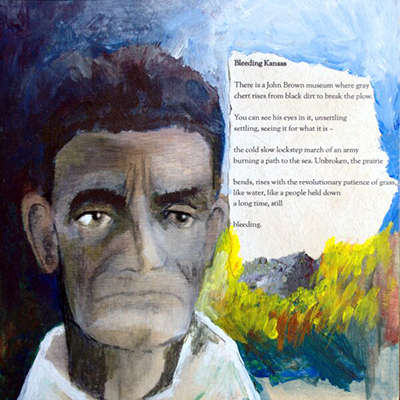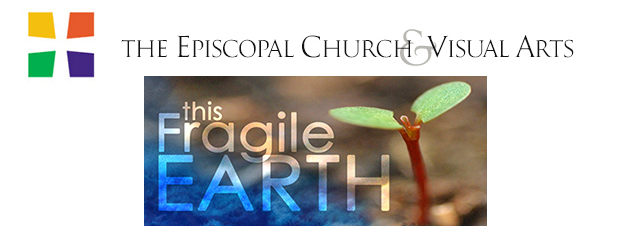
|
| bleeding Kansas [2018]
acrylic, graphite, ink, and paper |
Artist Statement: I read this eucharistic prayer as a radical affirmation of god's presence in the world – radical in the sense that the cosmos would not be without god's presence. The cosmos is to god as the word is to the one who speaks it. A word might exist as an abstraction even if no one spoke it, but this particular word exists in the speaking. And the one who speaks it might exist as an abstraction without a speaker; but this speaker, the speaker of this word, exists in the speaking. I am reminded of Hegel's “without the world, god would not be god." And radical in the sense of what Luther called the ubiquity of god: there is no place where god is not. It goes without saying that god is present in the here and now of the common meal in which the prayer is spoken. But the prayer is also a radical affirmation of the human capacity to turn this way and that, and it is a record of putting that capacity into play by turning away. The fragility of this fragile earth, our island home, does not lie in its being one tiny part of an infinite cosmos spoken by god. It does not lie in its being an island. It lies in its being “our" home and our abandonment of it in our turning away. Bio: Steven Schroeder is a poet and visual artist who lives and works in Chicago. |





